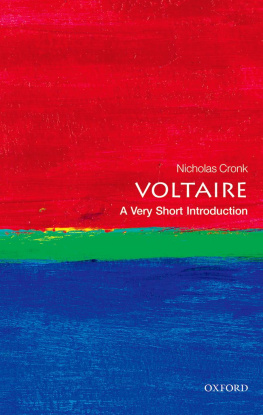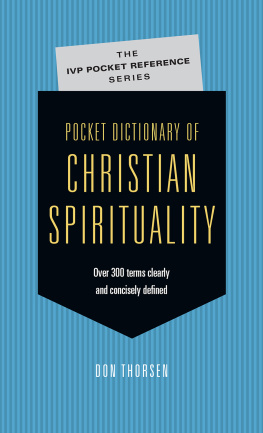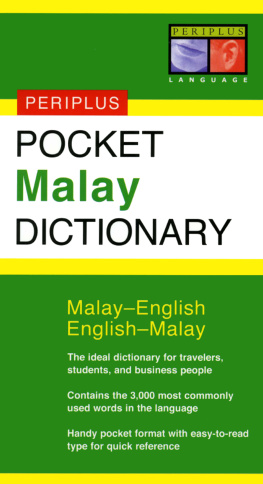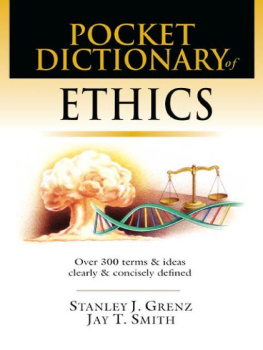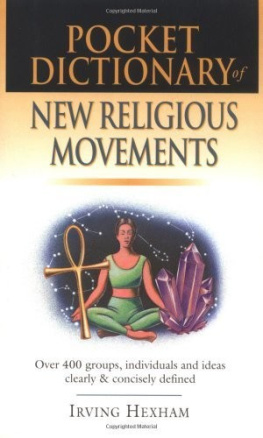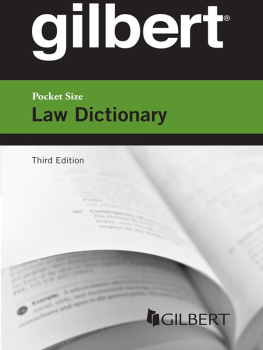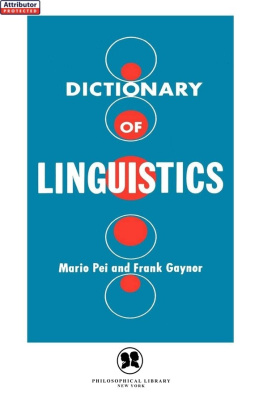Cronk Nicholas - A pocket philosophical dictionary
Here you can read online Cronk Nicholas - A pocket philosophical dictionary full text of the book (entire story) in english for free. Download pdf and epub, get meaning, cover and reviews about this ebook. City: Oxford u.a, year: 2011, publisher: Oxford University Press, genre: Detective and thriller. Description of the work, (preface) as well as reviews are available. Best literature library LitArk.com created for fans of good reading and offers a wide selection of genres:
Romance novel
Science fiction
Adventure
Detective
Science
History
Home and family
Prose
Art
Politics
Computer
Non-fiction
Religion
Business
Children
Humor
Choose a favorite category and find really read worthwhile books. Enjoy immersion in the world of imagination, feel the emotions of the characters or learn something new for yourself, make an fascinating discovery.

- Book:A pocket philosophical dictionary
- Author:
- Publisher:Oxford University Press
- Genre:
- Year:2011
- City:Oxford u.a
- Rating:3 / 5
- Favourites:Add to favourites
- Your mark:
- 60
- 1
- 2
- 3
- 4
- 5
A pocket philosophical dictionary: summary, description and annotation
We offer to read an annotation, description, summary or preface (depends on what the author of the book "A pocket philosophical dictionary" wrote himself). If you haven't found the necessary information about the book — write in the comments, we will try to find it.
A pocket philosophical dictionary — read online for free the complete book (whole text) full work
Below is the text of the book, divided by pages. System saving the place of the last page read, allows you to conveniently read the book "A pocket philosophical dictionary" online for free, without having to search again every time where you left off. Put a bookmark, and you can go to the page where you finished reading at any time.
Font size:
Interval:
Bookmark:

Great Clarendon Street, Oxford OX2 6DP
Oxford University Press is a department of the University of Oxford.
It furthers the Universitys objective of excellence in research, scholarship,
and education by publishing worldwide in
Oxford New York
Auckland Cape Town Dar es Salaam Hong Kong Karachi
Kuala Lumpur Madrid Melbourne Mexico City Nairobi
New Delhi Shanghai Taipei Toronto
With offices in
Argentina Austria Brazil Chile Czech Republic France Greece
Guatemala Hungary Italy Japan Poland Portugal Singapore
South Korea Switzerland Thailand Turkey Ukraine Vietnam
Oxford is a registered trade mark of Oxford University Press
in the UK and in certain other countries
Published in the United States
by Oxford University Press Inc., New York
Translation John Fletcher 2011
Editorial material Nicholas Cronk 2011
The moral rights of the authors have been asserted
Database right Oxford University Press (maker)
First published as an Oxford Worlds Classics paperback 2011
All rights reserved. No part of this publication may be reproduced, stored in a retrieval system, or transmitted, in any form or by any means, without the prior permission in writing of Oxford University Press, or as expressly permitted by law, or under terms agreed with the appropriate reprographics rights organization. Enquiries concerning reproduction outside the scope of the above should be sent to the Rights Department, Oxford University Press, at the address above
You must not circulate this book in any other binding or cover and you must impose this same condition on any acquirer
British Library Cataloguing in Publication Data
Data available
Library of Congress Cataloging in Publication Data
Data available
Typeset by Glyph International, Bangalore, India
Printed in Great Britain
on acid-free paper by
Clays Ltd, St Ives plc
ISBN 9780199553631
1 3 5 7 9 10 8 6 4 2
OXFORD WORLDS CLASSICS
For over 100 years Oxford Worlds Classics have brought readers closer to the worlds great literature. Now with over 700 titlesfrom the 4,000-year-old myths of Mesopotamia to the twentieth centurys greatest novelsthe series makes available lesser-known as well as celebrated writing.
The pocket-sized hardbacks of the early years contained introductions by Virginia Woolf, T. S. Eliot, Graham Greene, and other literary figures which enriched the experience of reading. Today the series is recognized for its fine scholarship and reliability in texts that span world literature, drama and poetry, religion, philosophy, and politics. Each edition includes perceptive commentary and essential background information to meet the changing needs of readers.
Refer to the to navigate through the material in this Oxford Worlds Classics ebook. Use the asterisks (*) throughout the text to access the hyperlinked Explanatory Notes.
OXFORD WORLDS CLASSICS

VOLTAIRE

Translated by
JOHN FLETCHER
With an Introduction and Notes by
NICHOLAS CRONK

OXFORD WORLDS CLASSICS
A POCKET PHILOSOPHICAL DICTIONARY
VOLTAIRE was the assumed name of Franois-Marie Arouet (16941778) Born into a well-to-do Parisian family, he was educated at the leading Jesuit college in Paris. Having refused to follow his father and elder brother into the legal profession he soon won widespread acclaim for dipe (1718), the first of some twenty-seven tragedies which he continued to write until the end of his life. His national epic La Henriade (1723) confirmed his reputation as the leading French literary figure of his generation. Following a quarrel with a worthless but influential aristocrat, the Chevalier de Rohan, he was forced into exile in England. This period (17268) was particularly formative, and his Letters concerning the English Nation (1733) constitute the first major expression of Voltaires deism and his subsequent lifelong opposition to religious and political oppression. Following the happy years (173443) spent at Cirey with his mistress Mme du Chtelet in the shared pursuit of several intellectual enthusiasms, notably the work of Isaac Newton, he enjoyed a brief interval of favour at court during which he was appointed Historiographer to the King. After the death of Mme du Chtelet in 1749 he finally accepted an invitation to the court of Frederick of Prussia, but left in 1753 when life with this particular enlightened despot became intolerable. In 1755, after temporary sojourn in Colmar, he settled at Les Dlices on the outskirts of Geneva. He then moved to nearby Ferney in 1759, the year Candide was published. Thereafter a spate of tragedies, stories, philosophical works, and polemical tracts, not to mention a huge number of letters, poured from his pen. After the death of Louis XV in 1774 he eventually returned to Paris in 1778 for the performance of his penultimate tragedy Irne. He was acclaimed and fted by the entire capital as the greatest living Frenchman and as one of the most effective champions of freedom, tolerance, and common sense the world had ever seen. He died there on 30 May 1778.
JOHN FLETCHER is Honorary Senior Research Fellow at the University of Kent.
NICHOLAS CRONK is Professor of French Literature and Director of the Voltaire Foundation, University of Oxford. He is General Editor of The Complete Works of Voltaire and editor of The Cambridge Companion to Voltaire (2009).
D | Voltaire, Correspondence and Related Documents, ed. Theodore Besterman, OCV 85135 (Geneva, Banbury, and Oxford: Voltaire Foundation, 196877). The letter D is followed by the number of the letter in this edition. |
OCV | Complete Works of Voltaire/uvres compltes de Voltaire (Geneva, Banbury, and Oxford: Voltaire Foundation, 1968) |
SVEC | Studies on Voltaire and the Eighteenth Century (Voltaire Foundation, 1955) |
VOLTAIRES Pocket Philosophical Dictionary (Dictionnaire philosophique portatif) is not a dictionary (in any ordinary sense of the term), nor is it philosophical (in the way we now use the word). But, crucially, it is portable (portatif) and meant for the pocket. Voltaire wanted to write a book which would shock and which would change minds, above all he wanted to reach out to a wide readership, so portability was essential: small books are cheaperand easier to hide if the police come looking for them. The Pocket Philosophical Dictionary is one of the most explosive and controversial works of the European Enlightenment; and it is also, if this all sounds rather serious, one of the funniest. It certainly tested the sense of humour of those in authority. Published anonymously in Geneva, in July 1764, the book was promptly condemned by the Paris parlement and ceremonially burned by the public executioner in Geneva. It was also placed on the Index of books prohibited by the Catholic Church, where it remained until the Index was abolished in 1966. Voltaires critique of the Bible and of Christian faith was certainly shockingsome believers still find it shockingbut many of the ideas he expresses in the work were commonplace in clandestine literature of the time. Why then did the book cause such an enormous storm from the moment of its first publication?
Next pageFont size:
Interval:
Bookmark:
Similar books «A pocket philosophical dictionary»
Look at similar books to A pocket philosophical dictionary. We have selected literature similar in name and meaning in the hope of providing readers with more options to find new, interesting, not yet read works.
Discussion, reviews of the book A pocket philosophical dictionary and just readers' own opinions. Leave your comments, write what you think about the work, its meaning or the main characters. Specify what exactly you liked and what you didn't like, and why you think so.

